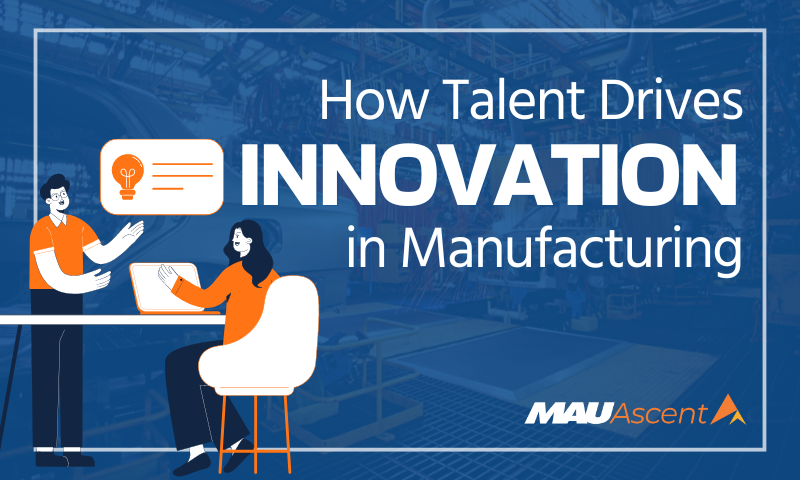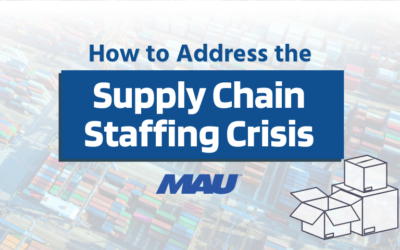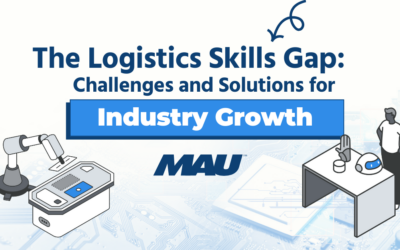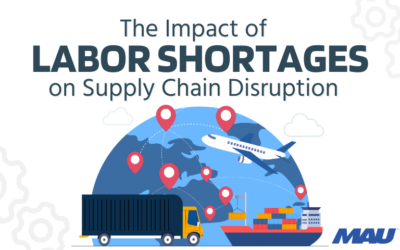Innovation is the lifeblood of the manufacturing sector. To stay competitive, businesses must continually evolve and adapt to new technologies and market demands. But what fuels this constant evolution? The answer lies in talent acquisition. For manufacturing professionals and HR managers, understanding how to attract, develop, and retain top talent is crucial to driving innovation and ensuring long-term success.
In this blog post, we’ll explore the intersection of talent acquisition strategies and innovation in manufacturing. We’ll discuss key techniques to enhance your recruitment process, how to align your workforce with cutting-edge advancements, and why a strong talent strategy is essential to staying ahead in today’s dynamic market.
The Link Between Talent Acquisition and Innovation
Innovation doesn’t happen by accident. It requires a strategic approach to bringing in fresh ideas and perspectives. This is where talent acquisition strategies play a critical role. In manufacturing, the right mix of skills and experience can lead to breakthroughs in production processes, product design, and operational efficiency.
To drive innovation, manufacturing leaders need robust recruitment strategies. Start by identifying the skills and competencies that are most critical for your organization’s growth. This could include expertise in advanced manufacturing techniques, familiarity with automation, or proficiency in data analytics.
Next, leverage technology to streamline your recruitment process. Utilize AI-driven tools to sift through resumes and identify the most promising candidates. This not only saves time but also ensures you’re considering a diverse pool of applicants. Additionally, consider partnerships with educational institutions to tap into emerging talent. By offering internships and apprenticeships, you can cultivate a pipeline of skilled workers eager to contribute to your company’s success.
Building a Manufacturing Workforce for the Future
The future of manufacturing is being shaped by rapid technological advancements, from robotics to IoT. To keep pace, companies must invest in a workforce that’s not only skilled but also adaptable. This means focusing on continuous learning and development as part of your talent strategy.
Encourage employees to expand their skill sets through training programs and workshops. This not only enhances their capabilities but also fosters a culture of innovation. By supporting career development, you can retain top talent who are motivated to bring their best ideas to the table. Remember, a well-trained workforce is a catalyst for innovation, enabling your company to remain competitive in a fast-evolving industry.
Aligning Talent with Advanced Manufacturing Technologies
Advanced manufacturing technologies are revolutionizing the industry, but they require a workforce that’s prepared to harness their potential. Talent acquisition should focus on candidates who not only possess technical skills but are also comfortable working alongside cutting-edge technologies.
Identify the specific technological needs of your organization and seek candidates who align with those requirements. This might mean sourcing talent with experience in robotics, AI, or other relevant fields. Additionally, provide existing employees with training opportunities to bridge any skill gaps. By aligning your workforce with the latest technological advancements, you position your company at the forefront of industry innovation.
Overcoming Challenges in Manufacturing Recruitment
Recruiting in the manufacturing sector presents a unique set of challenges. As the industry evolves, several factors contribute to the difficulties in attracting and retaining talent. A decreasing talent pool, ongoing skill shortages, and an aging workforce are just a few of the significant hurdles that need to be addressed. To effectively overcome these challenges, manufacturing leaders must adopt creative and proactive strategies.
Here are some potential challenges along with ways to overcome them:
- Shrinking Talent Pool
- Solution: Broaden recruitment efforts to reach a wider audience. Consider partnerships with local schools and trade organizations to promote careers in manufacturing.
- Skill Shortages
- Solution: Implement targeted training programs to develop the skills needed in the workforce. Collaborate with educational institutions for apprenticeships that provide hands-on experience.
- Aging Workforce
- Solution: Create mentorship programs where experienced workers can share their knowledge with younger employees. This fosters knowledge transfer and helps to retain valuable expertise.
- Negative Perception of Manufacturing Careers
- Solution: Launch awareness campaigns highlighting the growth potential and innovation in the manufacturing sector. Showcase success stories of individuals who have built rewarding careers in this field.
Additionally, manufacturing leaders should consider reskilling initiatives for existing employees to help bridge skill gaps and prepare them for future demands in a rapidly evolving landscape. By taking a comprehensive approach to these challenges, the manufacturing sector can build a robust and diverse workforce capable of driving innovation and success.
Achieving Talent Acquisition Success Through Strategic Partnership
Our strategic partnership empowered the client with the adaptable recruiting capacity essential for supporting their rapid expansion. By implementing standardized processes, we ensured a consistent and positive candidate experience, all while achieving significant cost savings.
Our tailored solutions not only aligned seamlessly with the client’s culture and strategic goals but also played a crucial role in their talent acquisition triumphs. With the flexibility to scale efficiently, we integrated as a vital extension of their talent acquisition team, culminating in the successful recruitment of over 200 salaried employees within the first year.
The Future of Talent Acquisition in Manufacturing
As the manufacturing landscape continues to evolve, so too will the approaches to talent acquisition. Future trends point towards an increased reliance on digital recruitment tools and the integration of AI in hiring processes. These technologies promise to enhance the efficiency and accuracy of candidate selection.
Manufacturers must remain agile and open to adopting new methods that improve their recruitment outcomes. By staying ahead of these trends, companies can ensure they attract the best talent available and sustain their innovation efforts in the long term.
If you’re ready to take your talent acquisition strategy to the next level, consider partnering with experts in the field. Together, you can build a team that not only meets today’s demands but also shapes the future of manufacturing.






